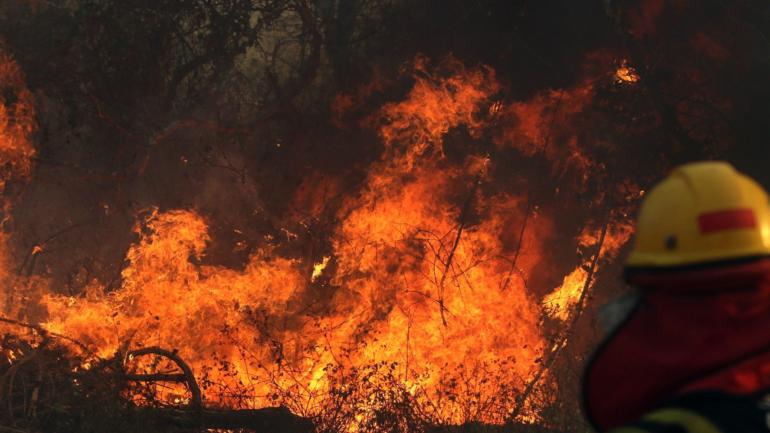Bolivia is seeking help from China, Russia and France in fighting fires in its section of the Amazon. CGTN’s Dan Collyns reports that more than one-million hectares of Bolivian rain forest have been destroyed.
Just when it seems like there’s nothing left to burn, some of the fires in Bolivia have reignited in places already blackened. The firefighters, mostly made up of trained volunteers, are battling on multiple fronts.
In some areas of the forest, there are still hundreds of fires, some of which have reactivated. That’s why the firefighters work at night, when it’s much easier to see the embers and make sure they’re fully extinguished. It’s hot, the air is full of ash and smoke, and the ground is so hot you can feel it coming through your shoes.
Wielding machetes and shovels and water hoses, they douse the smoking remains.
“We’re trying to reduce the fires to a minimum but they are still what we call a category 3, which is relatively strong in this area,” said one fireman.
FROM EARLIER:
In the nearby town of San Ignacio, the firefighters are changing shifts. Army cadets get a medical check-up before they’re dispatched to the fire line. As they file through, a weary team of volunteers arrives after eight days of battling fires in the bush, still overwhelmed by what they experienced.
“Most of all, I’m looking forward to seeing my family,” said fireman Andres Manaca. “It’s been a very powerful experience, partly because the fire nearly trapped me twice, and the first thing I thought of was my family, but thank God, I’m here now!”
Manacas tells how he got his team to safety after a fire whirl reared up around them. His teammates share some camera phone images of what they witnessed. All say the saddest part was seeing the destruction of nature as animals and birds tried to escape.
Indigenous communities in the forests have also suffered.
“This situation is very sad because we’ve been working for a long time with the communities on sustainable forest management which is an important source of their income,” said Maria del Carmen Carreras of the World Wildlife Fund. “At this point, many communities have lost to up to 98% of their forest.”
Over the past month, the number of fires has decreased by around two-thirds from a high of more than 10-thousand, but the damage has largely been done.
By the most modest estimate, at least one million hectares has burned, and environmental groups say the figure is closer to two million.
 CGTN America
CGTN America
 (PHOTO: AFP)
(PHOTO: AFP)
